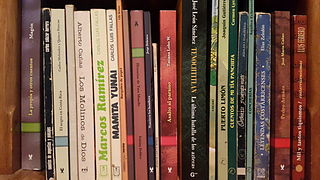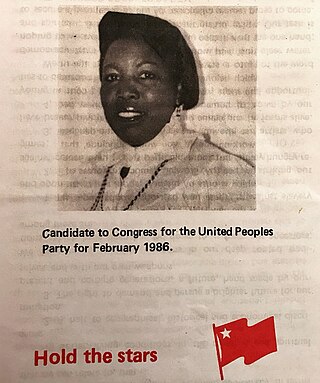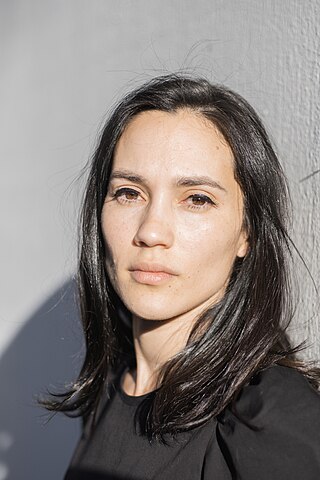
San José is the capital and largest city of Costa Rica, and the capital of the province of the same name. It is in the center of the country, in the mid-west of the Central Valley, within San José Canton. San José is Costa Rica's seat of national government, focal point of political and economic activity, and major transportation hub. San José Canton's population was 288,054 in 2011, and San José's municipal land area is 44.2 square kilometers, with an estimated 333,980 residents in 2015. Together with several other cantons of the central valley, including Alajuela, Heredia and Cartago, it forms the country's Greater Metropolitan Area, with an estimated population of over 2 million in 2017. The city is named in honor of Joseph of Nazareth.

The "Himno Nacional de Costa Rica", also known by its incipit, "Noble patria, tu hermosa bandera", is the national anthem of Costa Rica. Its music was composed by Manuel María Gutiérrez Flores, who dedicated the score to French adventurer Gabriel-Pierre Lafond de Lurcy, and adopted in 1852. The music was created to receive delegates from the United Kingdom and the United States that year for the Webster-Crampton Treaty. It was the first Central American national anthem.
The country of Costa Rica has many kinds of music.

Elizabeth Odio Benito is a lawyer and politician from Costa Rica. She served as President in the Inter-American Court of Human Rights from 2018 to 2020. She was a Vice-President of the International Criminal Court. She previously served as a judge on the International Criminal Tribunal for the Former Yugoslavia, and in her home country of Costa Rica was twice appointed Justice Minister, later becoming Vice-President of the Republic. Her background is as an academic lawyer, specialising in the administration of justice and human rights, in particular the rights of women.

Carmen Naranjo Coto was a Costa Rican novelist, poet and essayist. She was a recipient of the Aquileo J. Echeverría Award.

Joaquín Gutiérrez Mangel was a Costa Rican writer who won multiple awards, and whose children's book Cocorí has been translated into ten languages. In addition to writing children's books, Gutiérrez was a chess champion, war correspondent, journalist, story-teller, translator, professor, and communist activist.

The Archdiocese of San José de Costa Rica is a Latin Church ecclesiastical territory or archdiocese of the Catholic Church in Costa Rica. A metropolitan see, there are seven suffragan dioceses in its ecclesiastical province: the Diocese of Alajuela, Cartago, Ciudad Quesada, Limón, Puntarenas, San Isidro de El General, and Tilarán. Erected on 28 February 1850, the Diocese of San José de Costa Rica was elevated to an archdiocese on 16 February 1921. It is the sole archdiocese in Costa Rica.
Margarita Azurdia, who also worked under the pseudonyms Margot Fanjul, Margarita Rita Rica Dinamita, and Anastasia Margarita, was a feminist Guatemalan sculptor, painter, poet, and performance artist.

Epsy Alejandra Campbell Barr is a Costa Rican politician and economist who served as the Vice-president of Costa Rica from 8 May 2018 to 8 May 2022. She is the first woman of African descent to be vice president in Costa Rica and in Latin America.

Costa Rican literature has roots in colonization and is marked by European influences. Because Costa Rica is a young country, its literary tradition is also young. The history of Costa Rican literature dates to the end of the 19th century.

Yolanda Oreamuno Unger was a Costa Rican writer. Her most acclaimed novel is La Ruta de su Evasión (1948). Her 40 years of life were markedly divided into two phases: the first 20 years, filled with youth, beauty and happiness, contrasted sharply with the following years of tragedy, loneliness and sickness.

Desiree Ortiz is a Venezuelan television host. Currently hosting "Show Business", on air in fourteen countries through the Venevisión network, Venevisión Plus and Mega TV.

Costa Rica–Mexico relations are the diplomatic relations between Costa Rica and Mexico. Both nations are members of the Association of Caribbean States, Community of Latin American and Caribbean States, Organization of American States, Organization of Ibero-American States and the United Nations.
Estrella Zeledón Lizano was a Costa Rican public figure who served as the First Lady of Costa Rica from 1978 to 1982 during the presidency of her husband, Rodrigo Carazo Odio. She also served on the Executive Council of the United Nations Educational, Scientific and Cultural Organization (UNESCO) from 1981 until 1985.

Roxana Pinto Lopez is a Costa Rican poet, novelist and essayist.
Shirley Campbell Barr is a Costa Rican anthropologist, activist and poet. Her poetic works give voice to her activism set on empowering black women and encouraging them to establish their place in history. Her poem Rotundamente negra has become a symbol for women in the Afro-descendant women's movements in Latin American for its self-affirming pro-black message.

The Theosophical Society in Costa Rica was the local branch of the world Theosophical Society based in Adyar, India. It was founded on March 27, 1904 in the city of San José, and like Freemasonry in Costa Rica, it was the first in Central America, 1 it was introduced by the Spanish painter based in Costa Rica Tomás Povedano who began in Spanish theosophy. Its first lodge or branch was the Virya Branch, which published a magazine of the same name, currently it has four branches or lodges; Virya, Shakti Lodge, Dharma Lodge and HPB.
Victoria Cabezas Green, is an American photographer, conceptual artist and multimedia artist who has developed her production in Costa Rica.

Maunrice Eulalee Bernard Little, known as Eulalia Bernard, was a Costa Rican writer, poet, activist, politician, diplomat, and educator. She is considered in her country as an icon of the African descent culture. Bernard was the first Afro-Costa Rican woman to be published in her country.

Lilliam Armijo is a Salvadoran poet and writer. She is the granddaughter of the poet Roberto Armijo.















